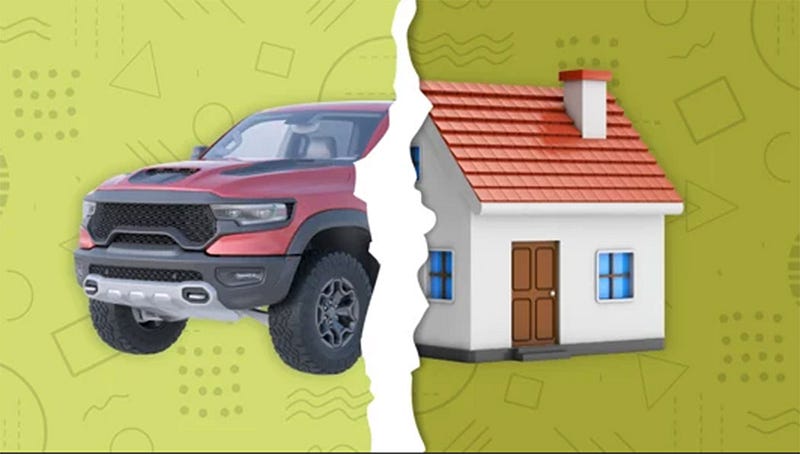Smart Financial Choices: Should You Buy a Car or a House First?
Written on
Chapter 1: The Dilemma of Car vs. House
Many individuals face the challenging decision of whether to buy a vehicle or a home first, especially when funds are limited.

Both options are often seen as essential, leading to ongoing debates about which should take priority. A common question arises: should you purchase a car or a house first? Here are some insights from various individuals:
- “A car is essential, not just a luxury. If acquiring a vehicle can enhance your economic situation or your business, why not prioritize it? In our society, people are often judged based on their appearance. You also need a reliable income before you can think about building a decent home,” stated Mr. Abraha.
- “Cars depreciate quickly; their value diminishes due to wear and tear. By the time a vehicle reaches the end of its useful life, its resale value is significantly lower than that of a home, which tends to appreciate over time, especially in desirable areas,” remarked Hafid Bin Salman.
- “Shelter is a fundamental human need, akin to food and clothing. Owning a house fulfills a primary need, as outlined in Abraham Maslow’s hierarchy of needs,” argued Brian.
The Crucial Decision: Prioritizing Financial Goals
Understanding the implications of each choice is vital:
- Home Value Appreciation: Real estate generally appreciates over time, particularly in sought-after locations. This appreciation can yield substantial returns, especially when you have equity in your home, which builds as you pay off your mortgage. This equity can be accessed later by selling the property or borrowing against it.
- Vehicle Depreciation: In contrast, vehicles are notorious for losing value. As soon as you drive a new car off the lot, it begins to depreciate, and this decline continues, leaving you with an asset worth significantly less than its original price.
- Long-Term Financial Benefits of Home Ownership: Owning a home can create wealth over time as property values increase. Additionally, homeowners may benefit from tax deductions on mortgage interest and property taxes.
- Ongoing Costs of Vehicle Ownership: While having a car is often necessary for daily transportation, it does not contribute to wealth accumulation. Instead, it incurs ongoing costs such as fuel, insurance, and maintenance, which can add up and deplete your finances.
Stability and Security
- Home Ownership: Owning a house provides financial and personal stability. Unlike rent, which can increase, fixed-rate mortgage payments remain constant, making it easier to plan for the future.
- Car Ownership: Although convenient, owning a vehicle doesn't offer the same financial security. Cars depreciate, meaning money spent on them is unlikely to be recovered later.
Investment Flexibility
- Home as an Investment: Once you own a home, you have various options for investment. You can sell it for a profit when the market is favorable, rent it out, or improve it to increase its value.
- Limited Flexibility with Vehicles: After a few years, you can sell your car, but you will likely receive a lower price than what you initially paid. Cars provide few opportunities for wealth enhancement.
In conclusion, for those aiming for long-term capital growth, purchasing a home should be prioritized over buying a car. A house is a more prudent investment for securing financial stability and offers the potential for appreciation and wealth generation. While a car is necessary for daily travel, it does not hold value in the same way. Making home acquisition your primary goal could pave the way for better financial success and stability.
The Financially SMART Way To Buy A House And A Car
This video explores practical strategies for making informed decisions when purchasing a house or a car, emphasizing the importance of financial planning.